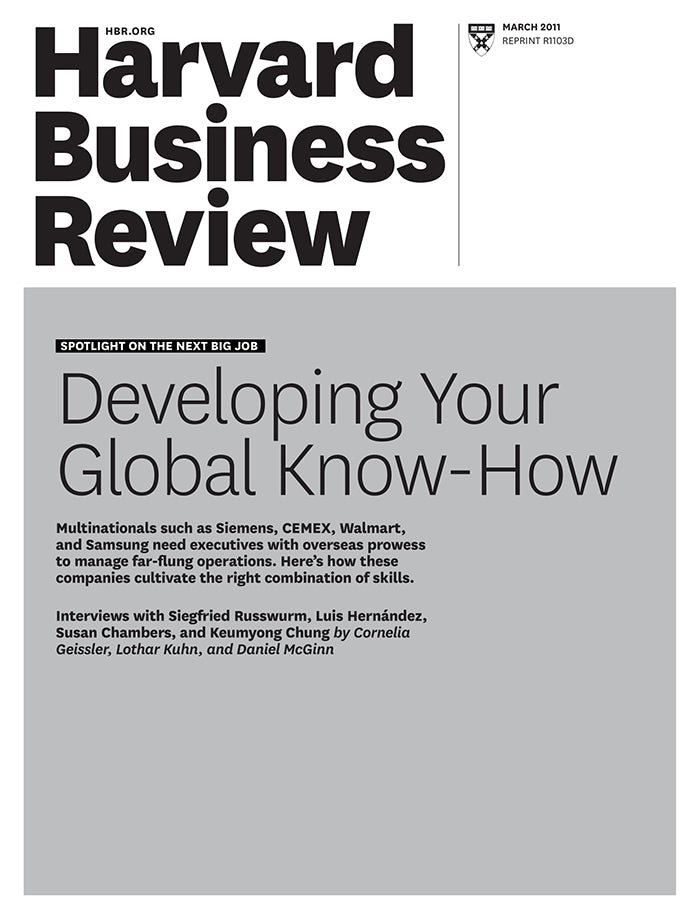Developing Your Global Know-How
受取状況を読み込めませんでした
For up-and-coming executives, an overseas posting has long been a rite of passage, providing opportunities not available in their native countries and experience that can be invaluable to their companies both during the assignment and after their return home. How has the Great Recession affected this formula? HBR spoke with the top human resources executives at four multinationals about how their companies are adapting global assignments to meet the demands of a changing world. Siegfried Russwurm, of Siemens, talks about the need to recruit workers who will really engage with their new culture-workers with the capacity for truly "international thinking." CEMEX's Luis Hern ndez discusses personal and professional factors that can make or break an overseas assignment. In the same vein, Keumyong Chung describes measures that Samsung has taken to reduce failures, including preassignment training of various kinds. Today's economy is prompting cutbacks in some global programs, but the news is not all bad: For example, at Walmart, as Susan Chambers relates, a new emphasis on creative, shorter-term assignments is allowing more people (including more women) to obtain global experience without the major uprooting of a conventional expat assignment. It is also helping them get that experience earlier in their careers-when it can be of maximum benefit to the employee and the company alike.
【書誌情報】
ページ数:7ページ
サイズ:A4
商品番号:HBSP-R1103D
発行日:2011/3/1
登録日:2012/3/28


